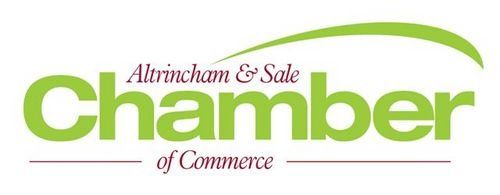Are we getting closer to court mandated ADR?
Victoria Greenwood • 28 July 2020
A post – Lomax review
There have been two recent cases that have shown the Courts increased interest in ADR. The first,
Telecom Centre (UK) Limited v Thomas Sanderson Limited [2020] EWHC 368 (QB)
focusses on the use of Early Neutral Evaluation (ENE) and the second
McParland & Partners Ltd and another v Whitehead [2020] EWHC 298 (Ch) saw the Chancellor of High Court hinting at the possibility of court-mandated mediation.
In Telecom Centre, Master McCloud in the Queen’s Bench Division suggested the use of ENE to help the parties settle the case. The parties had already of their own volition considered an ENE as a way of narrowing the issues. One of the problems Master McCloud focussed on was the lack of specific guidance on the use of ENE in the Queen’s Bench Guide and took this opportunity in her Judgment to share her approach to the process in order to inform other litigants and to perhaps aid the current author of the Queen’s Bench Guide.
The Judgment explains the purpose of ENE, when the process might be helpful and how it benefits the parties and the Court. Helpfully, the Judgment also included a precedent version of the order made in the case by Master McCloud, which gives helpful guidance as to what one should expect to be included in such an order.
Not only does this Judgment help other Judges who may wish to consider a direction, or even an order for ENE, but it also demonstrates the Court’s increasing interest in ENE following on from the Judgment in Lomax.
ENE obviously has advantages – as Master McCloud said in her Judgment it is especially useful where the resolution of some key issues would encourage settlement of others, however it is important to remember that it is an evaluative process, which can of course result in one party leaving the ENE with a significantly weaker position than it imagined.
This is the opposite of the facilitative approach of mediation, which offers no evaluation of the legal merits of the case but looks to bring the parties to a settlement, which both can live with, I.e. there is no winner but equally there is no loser – an attractive proposition to commercial parties.
McParland v Whitehead
dealt primarily with the disclosure pilot scheme, but what is of interest from an ADR perspective is the Court’s encouragement of parties to use mediation.
Sir Geoffrey raised the issue of whether following on from Lomax
it might be possible for courts to require parties to attempt mediation. He observed in his Judgment that the Lomax
decision inevitably raised the question of whether the court might also require parties to engage in mediation despite the decision in Halsey v. Milton Keynes General NHS Trust [2004] EWCA Civ 576; [2004] 1 W.L.R. 3002
. You will recall that Halsey
established that the Court could not compel an unwilling party to engage in mediation.
In this case the Court didn’t need to answer that question, as “fortunately”
the parties had already agreed that a mediation was to take place.
It will be interesting to follow whether the Court is open to reviewing the Halsey
position in future cases.

We like to think we will always be around. Unfortunately, our inability to confront our own mortality can have a disastrous effect on those closest to us and our businesses. All businesses need to deal with succession, but farming families are particularly vulnerable to the effects of failing to deal with succession. Why is succession planning so important within farming? One of the main reasons is that children are often involved in working on the family farm and there is this unwritten understanding that one day all of this will be yours. Farming families are also notorious for not having partnership agreements in place, which again can leave the business open to potential disputes over the ownership of the business and its assets. Issues within farming One of the most common disputes that arise in farming families from a lack of succession planning is a proprietary estoppel claim – briefly put this is where: A representation, promise, assurance or other encouragement by the defendant giving rise to an expectation by the claimant that he/she would have a certain proprietary interest. There is reliance by the claimant upon that expectation. Finally, the claimant suffers a detriment in consequence of his/her reasonable reliance on the promise. When can mediation help? During the planning discussions Getting to the actual discussion about succession is often the first hurdle. Farmers are often so busy running the farm that they don’t have time to think about succession planning and for many people having this sort of discussion doesn’t come easy. Family members don’t want to rock the boat – children don’t want to disappoint their parents by admitting they don’t really fancy running the farm. Parents may feel that they are forcing their children into running the farm, but then equally children can be insensitive with their new ideas for the farm, which can often lead to disputes with their elders. Having an open and honest conversation as early as possible – and before a problem arises, is the best course of action. The children may not want to carry on the farm, but by knowing this the parents can plan for their retirement and have something to aim for. Sometimes these discussions will get out of hand. Heated debate may take place and people may get offended and upset. Mediation enables an independent third party to come in and speak with all of those involved. The mediator can: Explore the goals of each family member and what they want to achieve Facilitate conversations between family members so that they understand what others feel and want Enable the family to come up with a way forward together Where no discussions have taken place and litigation ensues Proprietary estoppel cases are fuelled with emotion and often to lead to lengthy, bitter and very expensive litigation. Whist there are practical steps you can take to avoid claims such as avoiding making promises and succession planning, this isn’t always the case. If faced with a claim for proprietary estoppel the parties should consider the use of mediation over litigation as the advantages of using mediation include: Confidentiality – farming communities are small, and these cases are ripe for local gossip and media attention. Cost – a mediation costs between £1500 - £3000 per party vs legal costs of around £100,000 if it went to trial. Speed – the mediation can be arranged within a few weeks and dealt with in one day - in comparison to the time it will take to bring the matter to trial (at least a year) and a possible 3 to 5 day hearing. The parties decide on the solution rather than a Judge making a decision (which often suits neither party).

Despite popular opinion they are not something which should be only considered in later life, or at the onset of an illness but right now to ensure your wishes will be respected should you lose mental capacity, be that temporarily or indefinitely. Lasting Powers enable you, the donor, to appoint someone you know and trust to act in your best interest, when you are unable to do so. Their purpose is to promote your independence. Most attorneys will be appointed family members – children and grandchildren. Families do not always agree on things, and this will be no exception when it comes to making decisions as an appointed attorney. What can cause issues? • Underlying family tensions o The initial appointment of the attorney(s) may have exacerbated tensions between family members, with some questioning why they were only appointed as replacement attorney for example. • Lack of consensus of agreement between attorneys • Lack of agreement between attorney(s) and other family members • Lack of agreement/consultation between attorneys, family members and medical professionals • Lack of inclusion/consultation with the donor What kind of disputes can arise? • Accommodation decisions • Financial management • Property management • Care/treatment decisions • Gifts Family disputes can increase the risk to the donor as the disputes may mean that not all decisions are being made in the donor’s best interests, which can have a negative effect on the donor’s care, health and wellbeing. The Court of Protection and the Mental Capacity Act Code of Practice encourage those involved in an attorney dispute to attempt mediation. The mediator must have regard to the Mental Capacity Act 2005 (“MCA”), and one of the areas where mediation helps rebalance the power between donor and attorney(s) is that any settlement must comply with Section 4 of the MCA: “a decision made for a person who lacks capacity must be made in the best interests of that person” Mediation is ideal when people are not communicating well or not understanding each other‘s point of view. It can improve relationships and stop future disputes, so it is a good option for attorneys as it is in their interest to maintain good relationships in the future. Mediation • ensures issues are addressed in the best interests of the donor • involves the donor and takes into account their wishes and feelings • supports the donor in making decisions • enables parties to communicate effectively and understand each other’s points of view • likely cheaper than going to the Court of Protection

The latest Arcadis Global Construction Disputes Report 2020 has revealed that the average time taken to resolve construction disputes in the UK has fallen by 23% to just 9.8 months (previously 12.8 months). This reduction in time doesn’t correspond to a reduction in the average value of disputes, which have remained constant. So why is the average length of dispute in the UK the lowest in the world? The report looked at how the UK deals with its construction disputes with the top 3 most common methods pf resolving a construction dispute being: 1. Adjudication 2. Party to Party negotiation 3. Arbitration So why doesn’t mediation make the top 3? Mediation has lost its place in the top 3, having been overtaken by Arbitration – most likely due to the introduction of new low-cost schemes, such as the Chartered Institute of Arbitrators’ Business Arbitration Scheme. Efforts have been made to encourage the early use of dispute resolution in the construction sector – such as the Construction Industry Council’s Model Mediation Agreement and Procedure, but this doesn’t seem to have made much of an impact. Mediation offers a lower cost and a quicker option to those involved in the construction industry, so perhaps in time and with ongoing education as to the benefits more will come to use it. Whatever the method – alternative dispute resolution is here to stay, and the construction industry success certainly serves as a shining example.







